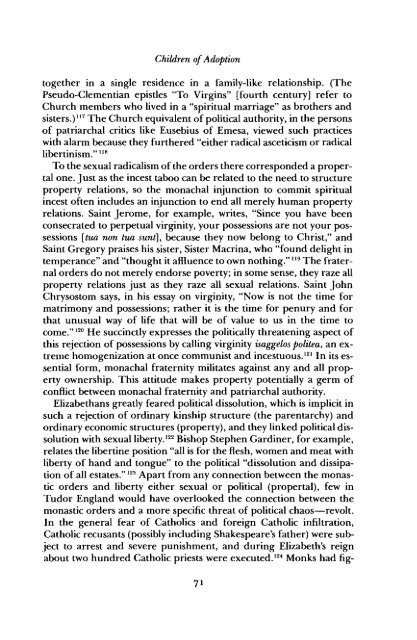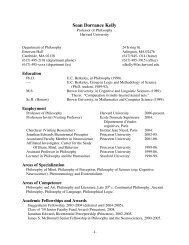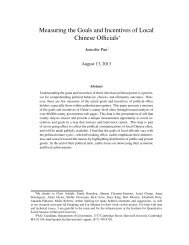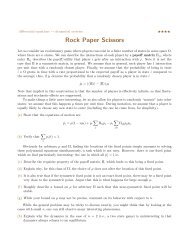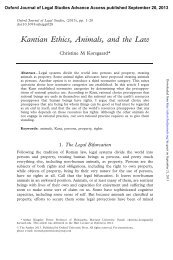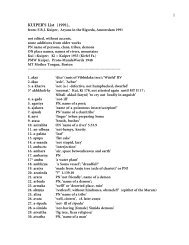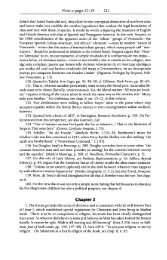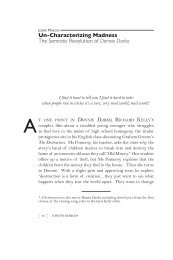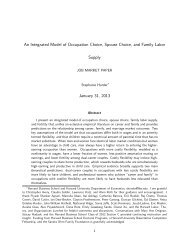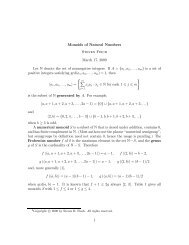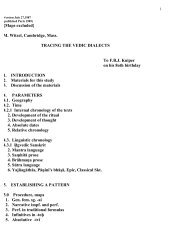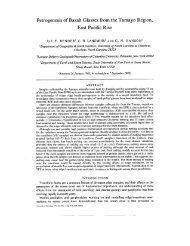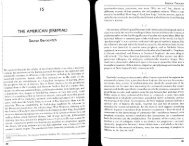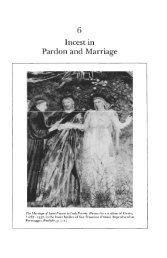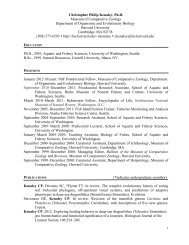Children of Adoption - People Fas Harvard
Children of Adoption - People Fas Harvard
Children of Adoption - People Fas Harvard
Create successful ePaper yourself
Turn your PDF publications into a flip-book with our unique Google optimized e-Paper software.
<strong>Children</strong> <strong>of</strong> <strong>Adoption</strong><br />
together in a single residence in a family-like relationship. (The<br />
Pseudo-Clementian epistles "To Virgins" [fourth century] refer to<br />
Church members who lived in a "spiritual marriage" as brothers and<br />
sisters.)l17 The Church equivalent <strong>of</strong> political authority, in the persons<br />
<strong>of</strong> patriarchal critics like Eusebius <strong>of</strong> Emesa, viewed such practices<br />
with alarm because they furthered "either radical asceticism or radical<br />
libertinism." 'I8<br />
To the sexual radicalism <strong>of</strong> the orders there corresponded a propertal<br />
one. Just as the incest taboo can be related to the need to structure<br />
property relations, so the monachal injunction to commit spiritual<br />
incest <strong>of</strong>ten includes an injunction to end all merely human property<br />
relations. Saint Jerome, for example, writes, "Since you have been<br />
consecrated to perpetual virginity, your possessions are not your possessions<br />
[tua non tua sunt], because they now belong to Christ," and<br />
Saint Gregory praises his sister, Sister Macrina, who "found delight in<br />
temperance" and "thought it affluence to own nothing."Il9 The fraternal<br />
orders do not merely endorse poverty; in some sense, they raze all<br />
property relations just as they raze all sexual relations. Saint John<br />
Chrysostom says, in his essay on virginity, "Now is not the time for<br />
matrimony and possessions; rather it is the time for penury and for<br />
that unusual way <strong>of</strong> life that will be <strong>of</strong> value to us in the time to<br />
come." Iz0 He succinctly expresses the politically threatening aspect <strong>of</strong><br />
this rejection <strong>of</strong> possessions by calling virginity isaggelos polztea, an extreme<br />
homogenization at once communist and incestuo~s.'~' In its essential<br />
form, monachal fraternity militates against any and all property<br />
ownership. This attitude makes property potentially a germ <strong>of</strong><br />
conflict between monachal fraternity and patriarchal authority.<br />
Elizabethans greatly feared political dissolution, which is implicit in<br />
such a rejection <strong>of</strong> ordinary kinship structure (the parentarchy) and<br />
ordinary economic structures (property), and they linked political dissolution<br />
with sexual liberty.'22 Bishop Stephen Gardiner, for example,<br />
relates the libertine position "all is for the flesh, women and meat with<br />
liberty <strong>of</strong> hand and tongue" to the political "dissolution and dissipation<br />
<strong>of</strong> all estates." Iz3 Apart from any connection between the monastic<br />
orders and liberty either sexual or political (propertal), few in<br />
Tudor England would have overlooked the connection between the<br />
monastic orders and a more specific threat <strong>of</strong> political chaos-revolt.<br />
In the general fear <strong>of</strong> Catholics and foreign Catholic infiltration,<br />
Catholic recusants (possibly including Shakespeare's father) were subject<br />
to arrest and severe punishment, and during Elizabeth's reign<br />
about two hundred Catholic priests were executed.lZ4 Monks had fig-


